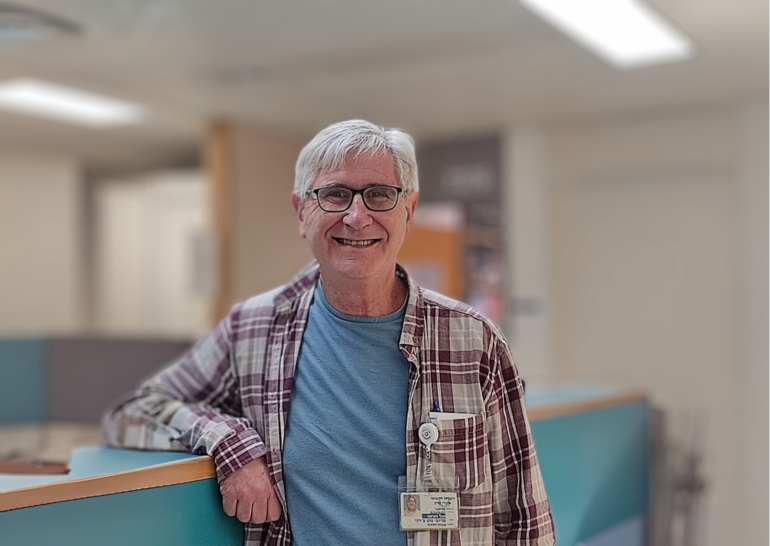A survey reveals that physicians outside the field of oncology are insufficiently updated on the latest advances in cancer care, thus increasing the risk of providing misleading information and inadequate support to patients.
Cancer care is a complex business that mostly lies in the hands of highly specialised oncologists, despite other health professionals like general practitioners often being well-positioned to provide comprehensive care and support to cancer patients along their disease journey. Some research has highlighted that patients themselves recognise family doctors as an important source of information and reassurance by virtue of their long-established doctor-patient relationships (Aust Fam Physician. 2005 April 1;34(4):299-300, 302). What could be an opportunity for personalised patient education and care, however, appears to have become a challenge for non-oncology physicians who struggle to keep pace with current advances in the field according to a survey investigating doctors’ knowledge of current prognosis for different cancers (Ann Oncol, 2021 September 1;32(S5):S1195).
“Most physicians’ knowledge of oncology dates back to whatever education they received during their years of training, so their perceptions of cancer prognosis are likely to lag behind the major survival gains achieved in the recent past,” says Dr. Conleth Murphy, Bon Secours Hospital Cork, Ireland, co-author of the survey which was presented at the ESMO Congress 2021.
A pessimistic perception of cancer prognosis
To assess doctors’ awareness of developments in cancer prognosis, 301 non-oncology physicians and 46 medical and radiation oncologists were asked to estimate patients’ five-year survival rates for 12 of the most common tumour types across all stages of disease, as well as for six clinical scenarios with a defined cancer type, stage and patient characteristics such as age. Their answers were then compared to the most recent survival figures from the National Cancer Registry of Ireland (NCRI).
“The non-oncologists, a diverse group comprising general practitioners and consultants from various hospital specialties, provided accurate estimates of all-stage survival for only two of the 12 cancer types, while oncologists, who were specifically asked not to use their prognostic tools, gave the correct figures for four,” Murphy explains. “In the more realistic task of prognosticating for specific clinical scenarios, the non-specialists significantly underestimated five-year survival across tumour types and were also more pessimistic than the oncologists overall.”
It is not entirely realistic for us to expect practitioners who deal with hundreds of different diseases to keep up with every facet of a rapidly changing oncology landscape.
Prof. Marco Donia, Herlev Hospital and University of Copenhagen, Denmark, explains these pessimistic perceptions among non-oncologists in the light of knowledge gaps also exhibited by well-trained specialists: “Oncology is a highly specialised field with many different staging subgroups of patients and as many prognoses. This means that a physician working in melanoma would not necessarily know the survival rates for different types and stages of breast cancer,” he says. “It is not surprising that doctors outside the field of oncology would fare even worse, and it is not entirely realistic for us to expect practitioners who deal with hundreds of different diseases to keep up with every facet of a rapidly changing oncology landscape.”
Realigning patients’ expectations with reality
Recent statistics contradict the persisting pessimism seen among non-oncologists, showing instead that long-term survival beyond five years following diagnosis is now within reach for over half of patients in Europe thanks to significant improvements in cancer screening programmes, early diagnosis and of course novel treatments like immunotherapy, which current research is seeking to optimise for more and more individuals in the future.
Although Murphy would advise doctors against answering patients’ questions about their survival chances with numbers, he does recommend that physicians who regularly encounter cancer patients in their practice familiarise themselves with the most up-to-date trends in prognosis to avoid giving patients unrealistic expectations, be they excessively optimistic or unduly pessimistic.
“Receiving news of a cancer diagnosis is a traumatic experience and patients often immediately have pressing questions about what it means for their future,” says Murphy, identifying the time of disclosure as the first key moment when appropriate counselling is essential, although it is usually not made by an oncologist, but by a surgeon or general medical physician at the hospital. “The information they receive during that initial encounter tends to be seared onto their mind and when it is incorrect, it can be very difficult for us as medical oncologists to realign their expectations. Patients must be spared the traumatic effects of being handed a death sentence that no longer reflects the current reality.”
Cancer-competent GPs could improve the continuity of care
Reinforcing training opportunities for non-oncologist healthcare professionals could help to ensure patients are provided with the right information at the right time, while also facilitating active cooperation with oncologists within a continuum of cancer care.
In fact, general practitioners can play a key role in the management of many acute symptoms or side-effects that may occur in the course of patients’ disease trajectory. As Prof. Massimo Di Maio, Mauriziano Hospital, Turin, Italy, stated in a previous article on the need to reinforce collaboration between cancer units and other physicians, patients currently have no other choice but to refer to their oncologist in cases of emergency, when actually most situations could be handled locally without hospitalisation if adequate help was available via the GP.
If closer oncologist-GP collaboration promises to simplify the disease management for patients during active treatment, cancer survivors are those who can benefit the most. Physical, emotional and cognitive fatigue is still prevalent approximately two years after diagnosis in patients with different tumour types (Cancer Med. 2020 November;9(21):8053-8061), and burdensome symptoms can persist even longer after the end of various therapies. Meanwhile, research presented at the ESMO Congress 2021 revealed high levels of dissatisfaction among cancer survivors with the assistance they received after being declared disease-free (Ann Oncol, 2021 September 1;32(S5):S1174). Being able to find competent support outside the hospital from a community GP qualified to assist in the implementation of a survivorship care plan could ultimately help survivors make the transition from a routine dictated by disease back to normal living.





